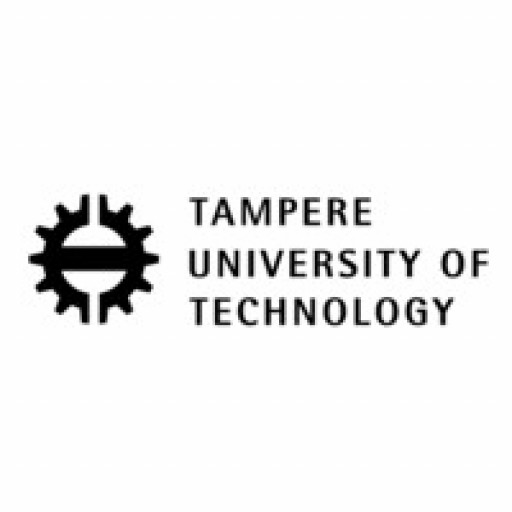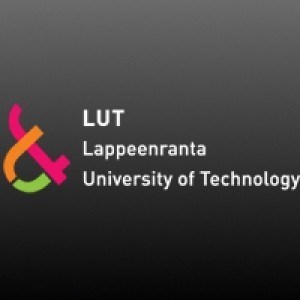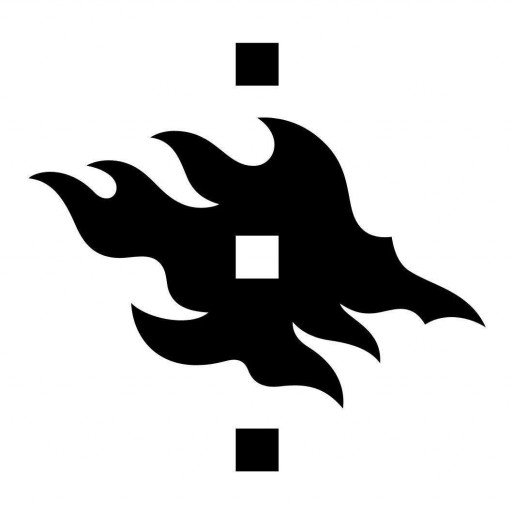Factory Automation and Robotics is a cutting-edge Master's degree programme offered at Tampere University, designed for students eager to advance their knowledge and skills in the field of modern manufacturing, automation, and robotics technology. This program aims to prepare graduates for the rapidly evolving industrial sector by providing a comprehensive education that combines theoretical foundations with practical applications. Students will explore key areas such as automation systems, robotics, control engineering, industrial Internet of Things (IIoT), artificial intelligence, and machine learning, equipping them with the capabilities to innovate and optimize manufacturing processes.
Throughout the programme, students engage in hands-on projects, laboratory work, and industry collaboration, enabling them to develop practical skills and a deep understanding of automation solutions in various industrial contexts. The curriculum emphasizes interdisciplinary learning, integrating computer science, electrical engineering, mechanical engineering, and systems optimization. Students will learn to design, analyze, and implement automated systems that increase production efficiency, safety, and sustainability.
The programme also focuses on developing competencies in programming, sensor technologies, automation software, and system integration. Students have access to state-of-the-art laboratories and simulation tools, facilitating experiential learning and experimentation. Industry-oriented coursework prepares graduates to meet the needs of modern manufacturing facilities, smart factories, and robotics applications across sectors such as automotive, electronics, pharmaceuticals, and logistics.
Graduates of Factory Automation and Robotics will be well-positioned to pursue careers in industrial automation engineering, robotics design and development, systems integration, or research and development. The programme also provides a solid foundation for those interested in doctoral studies or entrepreneurship in the field of automation technology. With Finland’s reputation as a leader in high-tech industries and industrial innovation, students will benefit from strong industry connections and potential collaborations with local companies and international organizations.
In this programme, students will develop critical problem-solving skills, innovative thinking, and the ability to adapt to emerging technologies. The faculty at Tampere University comprises experienced researchers and industry professionals dedicated to delivering a high-quality education and fostering a supportive learning environment. Graduates will be equipped to contribute to the advancement of manufacturing processes, improve operational efficiencies, and pioneer new solutions that meet the challenges of modern industry, making them highly competitive in the global job market.
The content and requirements
The extent of the degree programme is 120 cr. It consists of 90 cr of courses and Master Thesis of 30 cr. As a student of Factory Automation and Robotics, you will gain deep knowledge in both focus areas. You are also required to complete a course in the Finnish language during your studies. In that, you will gain good basic knowledge of everyday Finnish and get a brief introduction to Finnish culture.
To be a successful student in Factory Automation and Robotics, you need to have a background of one of the following fields: automation or control engineering, robotics, mechatronics, electrical engineering, aeronautical engineering, mechanical engineering or fluid power. We also require proficiency in mathematics, physics and programming.
Factory Automation and Industrial Informatics
This module deals with the scientific field of the automation of information (Informatics) to understand and build knowledge-based Factory Automation Systems.
The module provides insights on building components for Factory Automation Systems called Robotics and Discrete Automation Networks. It also gives fundamentals and technological competences on the role of ICT in Industrial Automation Systems. Specifically, in the field of Robotics, the studies cover Robot Manipulators providing education in following themes: Kinematics and Dynamic Modeling, Kinematic Control (Trajectory Planning) and Dynamic Control (Motion Control). The programming of robots follows industrial standards provided by the major robot providers, such as ABB, Sony, Mitsubishi, FANUC, KUKA, etc. You will also learn about international standards dealing with industrial robots and the typical applications.
Robotics
The number of robots and autonomous systems are growing rapidly and robotization is changing our life at both home and work. Robots and autonomous systems will be utilized in every sector of industry and services. Companies are investing heavily on the research and development of robotics and its applications. We already have autonomous mines and ports where ore and containers are transported by autonomous vehicles. Our factories have more and more sophisticated robots for tedious, dangerous and precise tasks. In the future, different kinds of assistance robots will help people in health care. This change requires competent people to carry out research and development in the field of robotics.
The Robotics Major offers basic skills and knowledge on robotics and the technology involved. Studies include the fundamentals of robotics, control of robotics, sensing/perception systems for robotics and project work. To be successful in this major, you need to have a solid mathematical background and good programming skills. After the studies, you are able to develop robot-based systems.
It is not possible to apply to a Master’s programme on the basis of a Master’s degree. The only exceptions are the one-tier degree programmes where the first cycle degree is not compulsory and the so-called long cycle degrees.
Applicants who are seeking admission to their first Master’s programme are given preference in the admissions process. Applicants for a second Master’s degree may be admitted only under special provision and only if they are able to show that the courses that count towards a degree at Tampere University of Technology provide the applicant with genuinely new knowledge and skills.
Applicants are required to demonstrate a high level of proficiency in the English language. TUT accepts internationally recognised academic language tests as demonstration of language proficiency. The accepted tests are IELTS Academic, TOEFL iBT, TOEFL PBT, PTE Academic and CAE/CPE.
To better further your success in the admission process generally the overall grade (CGPA) of the degree should reach at least 70 %. The CGPA (Cumulative Grade Point Average) is an average of all of your grades for the courses in your previous degree.
Students admitted to a Master’s degree programme may be required to complement their earlier degree with complementary studies. All students with a Finnish University of Applied Sciences (AMK) degree are required to complete a study package which generally includes courses in Mathematics, Physics and Chemistry depending on the student's background. For more information on the complementary studies, please contact the academic coordinator of the degree programme.
The student selection is made by an admissions committee on the basis of the academic qualifications and merits shown in the application documents. Please note that not all applicants fulfilling the requirements can be admitted.
English language tests
TUT accepts internationally recognised academic language tests as demonstration of language proficiency. The accepted tests are IELTS Academic, TOEFL iBT, TOEFL PBT, PTE Academic and CAE/CPE. Please note that the language test needs to be taken before the application deadline. We cannot accept language tests taken after the application deadline.
If you take the language test close to the application deadline and cannot submit the test results together with the other application documents, please contact the TUT Admissions Office (admissions@tut.fi) for further instructions.
If your language test score is expiring during the application period you should contact the TUT Admissions Office well before it expires.
IELTS Academic (score 6,5)
Tampere University of Technology verifies all IELTS test results from the test organiser. Upload a copy of the IELTS score slip on your application. It is very important that you indicate your IELTS test report number on the application form.
TOEFL (score: TOEFL iBT 95, TOEFL paper based test 580)
When registering for the TOEFL, enter the code of Tampere University of Technology 0599 into the Score Report Recipient field. TUT verifies all TOEFL test results online from the test organiser. Indicate your test score and test date on the application form.
If you have already taken the TOEFL test you will need to request the test organiser to make the test score available to TUT online.
PTE Academic (score 62)
Your online PTE Academic account allows you to send a secure copy of your test scores to Tampere University of Technology online. TUT will then be able to access and verify your test result online. Indicate your test score and test date on the application form.
Cambridge Language Certificate (Proficiency CPE or Advanced CAE)
Upload your test results on your application. Your results will be verified from the test organiser. Include your Candidate's ID and secret code.
Tuition fees for english-taught degree programmes:
- 10 000 € per academic year for the Bachelor’s programme
- 12 000 € per academic year for all Master’s level programmes
For students who are citizens of countries within the European Union (EU), the European Economic Area (EEA) or Switzerland, studies in all degree programmes will remain free of charge. Tuition fees will also not affect those non-EU/EEA students who have the right to permanent residence in Finland (residence permits A, P and P-EU).
TUT offers a generous scholarship programme for fee-paying students. With the help of the TUT scholarship, TUT continues to provide excellent international students with high-quality, yet affordable, education. The TUT scholarship programme consists of the TUT academic excellence scholarship and tuition fee waivers.
TUT academic excellence scholarship
In 2018, TUT is awarding the TUT academic excellence scholarship to up to ten of the most talented applicants. The TUT academic excellence scholarships include a full tuition fee waiver as well as an allowance of 7000 € per academic year to cover living costs. The scholarships are awarded for an academic year and considered on an annual basis.
Tuition fee waivers
The majority of TUT scholarships are awarded as tuition fee waivers to the most talented students. The fee waivers awarded may cover either 50 % or 100 % of the full tuition fee. Tuition fee waivers are awarded during the admissions process or can be earned during the studies. The tuition fee waivers awarded in conjunction with the student admission process are full tuition fee waivers which cover 100 % of the tuition fee. The tuition fee waiver is awarded to a sizeable proportion of the admitted students.
The Master’s Degree Programme in Factory Automation and Robotics at Tampere University is designed to equip students with advanced knowledge and skills in the field of automation systems, robotics, and manufacturing processes. The programme focuses on the development, implementation, and management of intelligent automation solutions used in modern industry. Students gain a comprehensive understanding of automation technologies, control engineering, mechatronics, and robotics, enabling them to design and optimize automated production lines and robotic systems. The curriculum combines theoretical studies with practical applications, incorporating the latest innovations in industrial automation and robotics. Courses cover a wide range of topics, including sensor and actuator technology, PLC programming, industrial communication networks, robot programming, and system integration. Students also have the opportunity to work on real-world projects in close collaboration with industry partners, giving them valuable hands-on experience. The programme emphasizes innovative thinking, problem-solving, and teamwork, preparing graduates for careers in manufacturing, automation consulting, robotics development, and research and development. Graduates will be equipped with the skills necessary to develop automated systems that improve efficiency, safety, and sustainability in industry. The program is offered in English, attracting students from diverse backgrounds worldwide. It typically requires a bachelor's degree in engineering or a related field, with some programs possibly including prerequisite coursework in mechanical, electrical, or computer engineering. Upon completion, students are awarded a Master of Science (Technology) degree and are prepared to pursue advanced roles in industry or academia. The programme provides excellent career prospects, as the demand for automation and robotics specialists continues to grow globally due to Industry 4.0 trends and increasing automation in manufacturing sectors.


